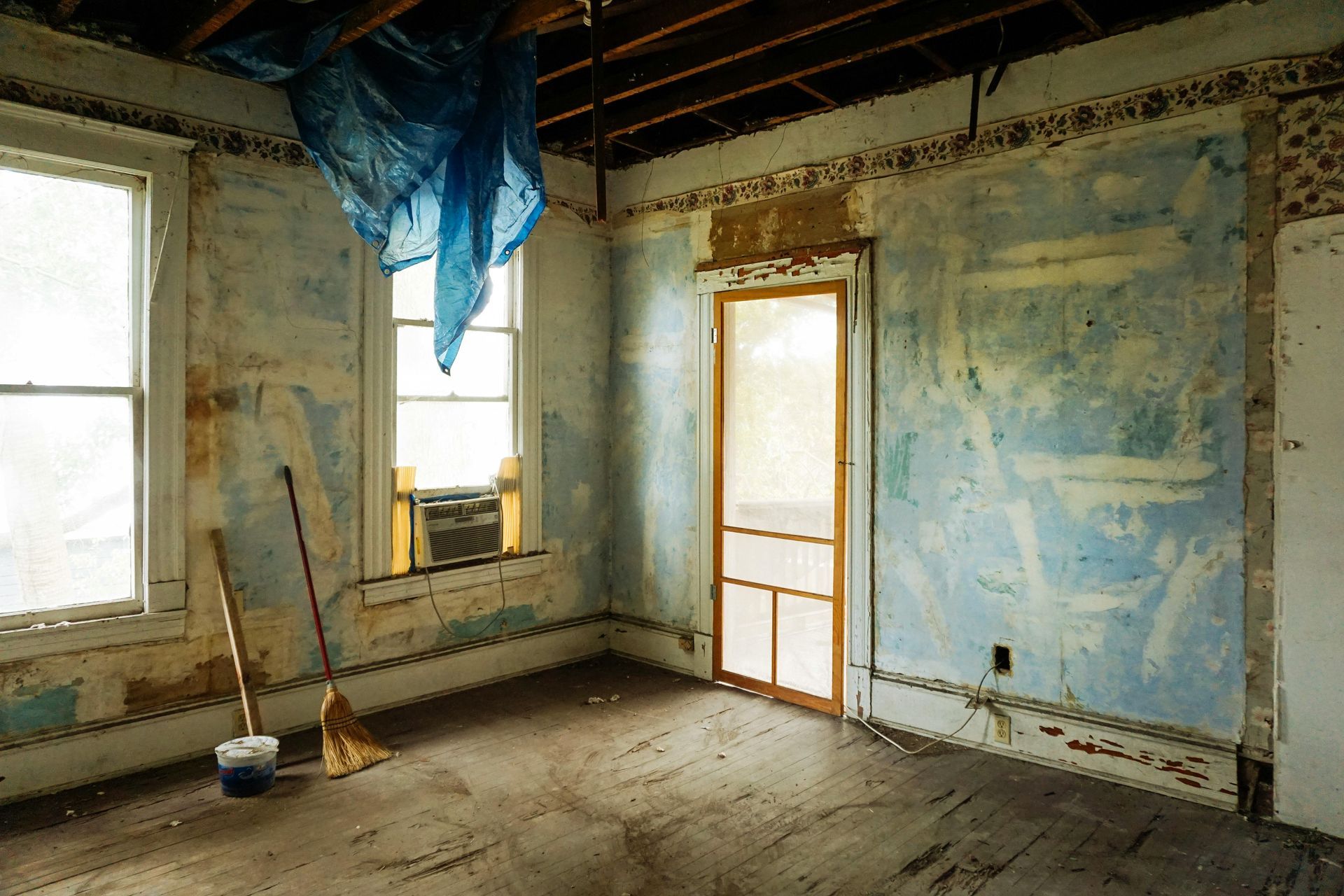By Mike Quinn
•
January 23, 2025
Investing in real estate has long been a tried-and-true path to building wealth, but it’s not without its challenges. In 2025, navigating the complexities of purchasing, rehabbing, and renting a home has become even more nuanced as economic trends, financing options, and market dynamics evolve. For investors—especially those diving into the process for the first time—understanding these challenges is crucial for success. Let’s break down the key obstacles and explore how private lending and hard money loans have become vital tools for modern real estate investors. ________________________________________ 1. The Challenges of Buying a Home in 2025 Rising Home Prices and Competitive Markets Real estate prices continue to rise in many markets, driven by population growth, increased demand for housing, and limited inventory. Investors face fierce competition, not only from other individual buyers but also from institutional investors and foreign entities. In 2025, technology-driven bidding platforms have become mainstream, further accelerating the speed at which homes are sold. While this innovation increases efficiency, it also requires investors to act quickly and make well-informed decisions under tight time constraints. Navigating Financing Options Securing financing for an investment property often presents more hurdles than obtaining a conventional mortgage for a primary residence. Lenders typically require higher down payments, charge higher interest rates, and have stricter qualification criteria. Additionally, regulations in 2025 around real estate financing have become more stringent to protect against market instability, adding another layer of complexity. Due Diligence and Hidden Costs Performing due diligence is critical when purchasing a property, especially for those planning to rehab it. Investors need to account for inspection costs, zoning restrictions, and potential environmental hazards. In many cases, hidden issues such as structural damage or outdated electrical systems only come to light after purchase, turning a promising deal into a costly headache. ________________________________________ 2. The Challenges of Rehabbing a Property Labor Shortages and Material Costs The labor shortages that have plagued the construction industry for years remain a significant challenge in 2025. Skilled contractors are in high demand, leading to longer project timelines and higher costs. Additionally, the cost of building materials remains elevated due to global supply chain disruptions and inflationary pressures. Unexpected Repairs and Overruns Even with a thorough inspection, rehab projects often uncover unforeseen issues once work begins. From mold behind walls to faulty plumbing, these surprises can derail timelines and budgets. Effective project management and contingency planning are critical to mitigate these risks. Permitting and Regulatory Hurdles Obtaining the necessary permits can be a time-consuming and frustrating process, particularly in cities with strict zoning laws and bureaucratic inefficiencies. In 2025, many municipalities have introduced new environmental and energy-efficiency regulations, adding complexity to the permitting process. ________________________________________ 3. The Challenges of Renting a Property Tenant Screening and Management Finding reliable tenants is one of the biggest challenges for landlords. Poor tenant selection can lead to late payments, property damage, and even costly eviction proceedings. In 2025, while tenant screening tools are more advanced than ever, landlords must also navigate new tenant-friendly regulations aimed at preventing discrimination and ensuring fair housing practices. Maintenance and Property Management Managing a rental property requires ongoing effort, from handling routine maintenance to addressing tenant complaints. Many investors underestimate the time and resources needed to be an effective landlord. In response, property management companies have expanded their services, offering tech-enabled platforms that streamline rent collection, maintenance scheduling, and tenant communication. Economic Uncertainty The lingering effects of the pandemic, coupled with geopolitical tensions and climate-related disruptions, have created economic uncertainties that can impact rental income. For example, in some markets, rental rates have plateaued or even declined due to oversupply or shifting demand. ________________________________________ 4. The Role of Private Lending and Hard Money Loans Amid these challenges, private lending and hard money loans have emerged as powerful tools for real estate investors, offering unique advantages over traditional financing methods. What Are Private Lending and Hard Money Loans? Private lending involves borrowing funds from individuals or private entities rather than traditional banks. Hard money loans are a specific type of private loan, typically secured by the property itself and designed for short-term use—often to finance rehab projects. Advantages of Private Lending and Hard Money Loans. 1. Speed and Flexibility: Unlike traditional bank loans, which can take weeks or even months to process, private loans are often approved and disbursed within days. This speed allows investors to act quickly in competitive markets. 2. Lenient Qualification Requirements: Private lenders focus more on the value of the property and the investor’s plan than on credit scores or income levels, making these loans accessible to a broader range of borrowers. 3. Tailored Solutions: Private lenders often provide customized loan terms, such as interest-only payments during the rehab period, which can help investors manage cash flow. 4. Risk Mitigation: For investors rehabbing properties, hard money loans can be structured to release funds in stages, ensuring that work progresses as planned and minimizing the lender’s risk. What’s New in 2025? Private lending has seen significant innovation in recent years. Online platforms now connect borrowers with private lenders, streamlining the application and funding process. Additionally, blockchain technology is being used to verify property titles and facilitate transparent transactions, reducing fraud and improving efficiency. Crowdfunding for real estate investments has also grown in popularity, allowing individual investors to pool resources and fund projects collectively. This democratized approach is opening up opportunities for smaller-scale investors who might not have access to traditional private lenders. ________________________________________ 5. Overcoming Challenges and Maximizing Success While the challenges of buying, rehabbing, and renting properties in 2025 are significant, they are not insurmountable. Here are some strategies to help investors succeed: 1. Build a Strong Team: Surround yourself with experienced professionals, including real estate agents, contractors, property managers, and attorneys. Their expertise can help you navigate complexities and avoid costly mistakes. 2. Leverage Technology: Use data analytics tools to identify promising markets, estimate rehab costs, and set competitive rental rates. Modern software platforms can also streamline property management tasks and improve tenant relations. 3. Create a Financial Cushion: Unexpected expenses are inevitable, so it’s essential to have a contingency fund to cover cost overruns and vacancies. 4. Embrace Alternative Financing: Explore private lending and hard money loans to unlock opportunities that might not be feasible with traditional financing. 5. Stay Informed: Keep up with local market trends, regulatory changes, and technological advancements to stay ahead of the curve. ________________________________________ Conclusion Investing in real estate by buying, rehabbing, and renting properties is a rewarding yet challenging endeavor. In 2025, investors must navigate rising prices, labor shortages, and regulatory complexities while staying adaptable to economic uncertainties. However, with the right strategies and tools—including private lending and hard money loans—it’s possible to overcome these challenges and achieve long-term success. By leveraging the latest innovations and maintaining a proactive mindset, today’s investors can turn obstacles into opportunities and continue building wealth through real estate. Call us today at 484.343.4216 or email us at info@tbalending.com to learn how we can help you finance your next investment. Let’s make your vision a reality.










